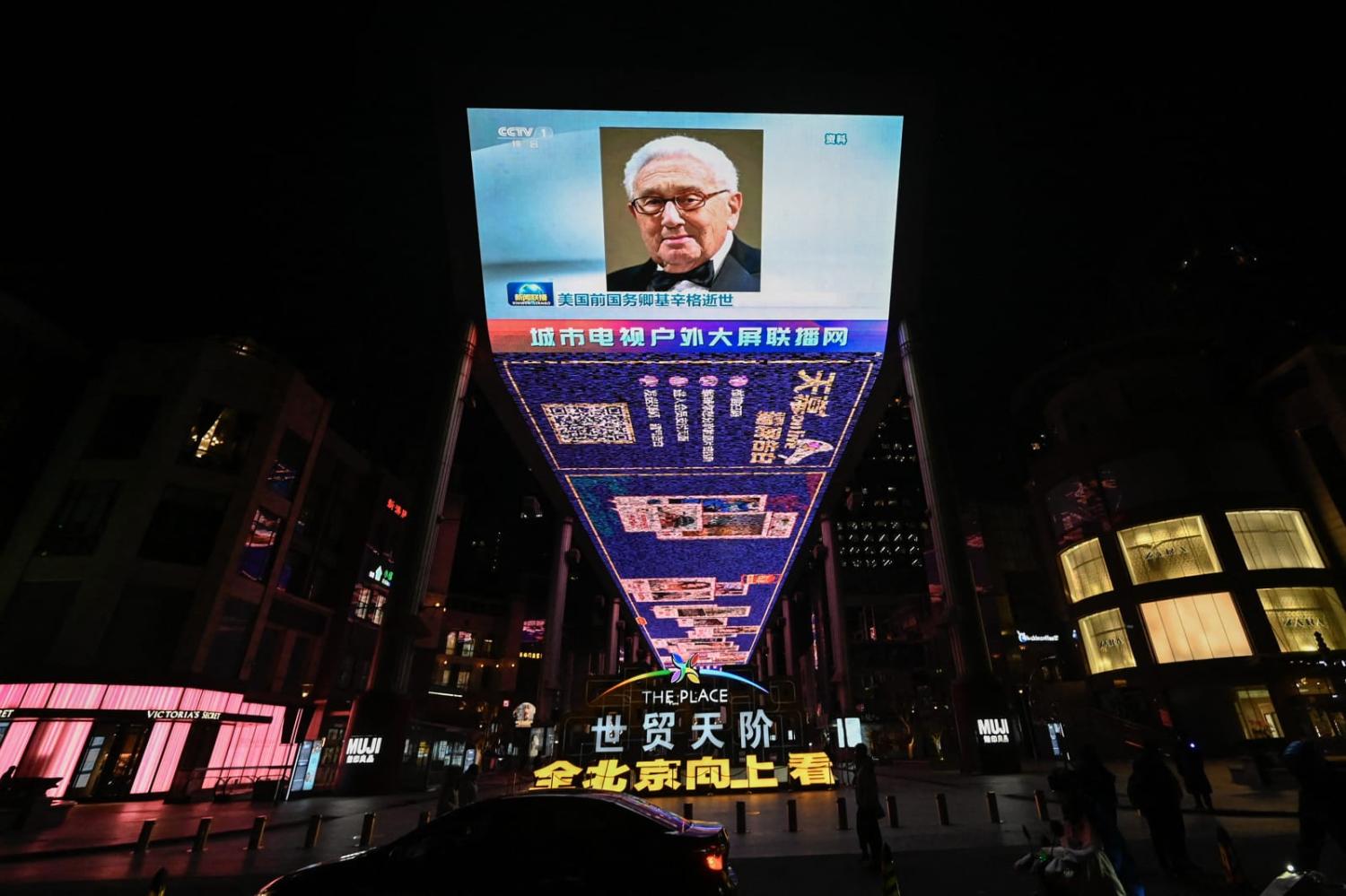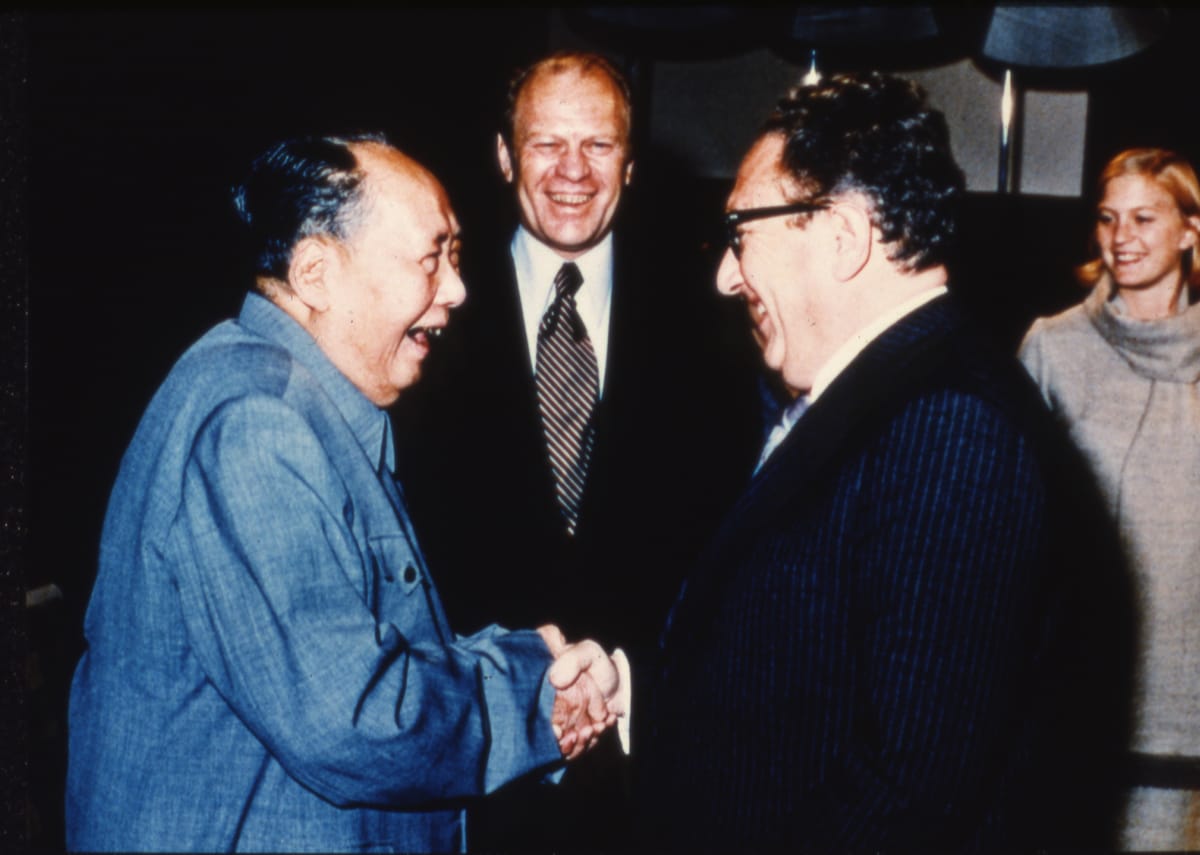The outpouring in China stems from dissatisfaction with the current
US policy towards Beijing and change from Kissinger’s framework.

The passing of the former US Secretary of State Henry Kissinger, a towering figure in 20th-century diplomacy, has triggered global reflections on his complex legacy. While Western perceptions of Kissinger remain polarised, the perspective in China, as predominantly portrayed in the media and encapsulated by President Xi Jinping’s tribute, stands as notably favourable. “Henry Kissinger was a world-renowned strategist and also an old friend and good friend of the Chinese people,” Xi declared.
The title “old friend of the Chinese people” is considered the highest courtesy for the government of China to bestow on foreign individuals, and Chinese media has endeavoured to make the public understand that Kissinger was deserving of the title because of his understanding of and appreciation for Chinese history and culture. There have been frequent references to Kissinger’s 2011 treatise On China.
From the viewpoint in China, Kissinger’s legacy is framed by two crucial historical periods. The first, during the Cold War, saw Kissinger champion the normalisation of China-US relations, establishing a policy framework that endured for four decades. Central to this approach was humility in the ideological domain, recognising the authority of the Chinese Communist Party, and providing sufficient assurances on the Taiwan issue. Embracing this “live-and-let-live” attitude, the two countries maintained a generally stable relationship for decades.

The second period, amid contemporary great power competition, witnessed Kissinger advocating for peaceful coexistence between China and the United States. His concept of “co-evolution” emphasised the importance of avoiding misunderstandings and suspicions, and managing the China-US relationship from the perspective of international order and the well-being of human society.
Acknowledged as a realist in diplomacy in support of US interests, Kissinger’s strategic beliefs are portrayed as rooted in his experience during the Second World War, fostering an understanding of the necessity of a stable international order, maintained through coordination among major powers. For example, what has been frequently mentioned is that Kissinger wrote:
China does not see itself as a rising, but a returning power. It does not view the prospect of a strong China exercising influence in economic, cultural, political, and military affairs as an unnatural challenge to the world order – but rather as a return to a normal state of affairs.
China’s media has frequently referred to Kissinger’s understanding of Chinese go (wei qi) as a reflection of Chinese distinctive strategic culture, and that the game can provide valuable insight into the strategic thought processes of Chinese leaders and policymakers.
China’s mourning for Kissinger is a tribute to his dedication to healthy China-US relations, and the trip made to Beijing in July this year, his centennial year, earns him admiration. Yet it also reflects a sense of political nostalgia. The death of Kissinger offers an occasion for China to express dissatisfaction with the trajectory of China-US relations, and such discontent rises as the United States has gradually deviated from the policy framework towards China that was epitomised by figures such as Kissinger.
The shift from ideological humility to a confrontational approach in Washington is evident in the framing of US-China competition as democracy versus autocracy. The distinction made by the US President Donald Trump and his Secretary of State Mike Pompeo between the CCP and the Chinese populace during the Covid-19 pandemic contributed significantly to the worsening of already strained US-China bilateral relations. Trump’s bid to be the Republican candidate in the 2024 election and the possibility of his return to the White House creates more anxiety in Beijing, not less, about the future of China-US relations.
What China finds most intolerable is Washington’s deviation from the “One-China policy”. In the eyes of Chinese leaders and the public, undermining this policy is a direct challenge to the principles that have guided diplomatic interactions with the United States for decades. Political nostalgia leads China to the belief that Kissinger’s far-sighted strategic vision and sophisticated diplomatic practices offer a valuable historical precedent, and American politicians should reopen Kissinger’s playbook for managing relations.
However, exemplified by Trump’s decision to revoke Kissinger’s membership in the Defence Policy Board, and the Biden administration’s subsequent distancing from him, Chinese policy elites are acutely aware that Kissinger’s strategic approach towards China has been increasingly sidelined. Thus, scholars caution against anticipating a return to Kissinger’s doctrine, urging a realistic appraisal of the evolving dynamics.
In his tribute to Kissinger, Xi also expressed a willingness to work with the United States for “healthy” relations. Achieving this goal requires not only American support for Kissinger’s China doctrine, but also for the current leaders of China to uphold the flexibility and pragmatism demonstrated by the older generation of Communist Party leaders in their approach towards the United States. In other words, the strategies adopted should not merely involve confrontation and deterrence. Skilful diplomacy and credible reassurances are indispensable.
